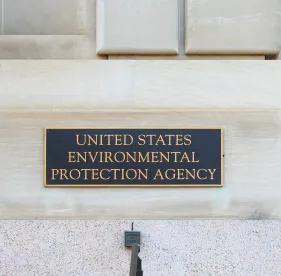Key Takeaways
-
Environmental NGOs plan to heavily scrutinize regulated entities’ compliance and EPA’s handling of non-compliance during the pandemic.
-
Although NGOs and some states are concerned that EPA’s enforcement discretion policy will result in non-compliance and diminish public access to compliance documents, significant documentation and support by a regulated entity claiming a COVID-19 compliance impact is a critical condition under EPA’s policy.
-
The NGOs’ request to require real-time notifications to EPA of potential non-compliance and force EPA to contemporaneously make these publicly available, would distract from the EPA’s necessary focus on immediate public health risks and environmental threats.
-
Some states have objected to EPA’s recent policy on enforcement discretion while other states have similar policies or are following EPA’s guidance. It is critical for regulated entities to understand the specific situation in the places they operate as the ground rules for operating during COVID-19 are beginning to be defined differently depending on location.
Overview
Just two weeks after a coalition of environmental groups filed a Petition for Emergency Rulemaking (Petition) with EPA regarding the Agency’s policy on its exercise of enforcement discretion during and following the COVID-19 pandemic, the same coalition sued EPA on April 16, 2010, claiming that the Agency has unreasonably delayed in responding to the Petition and must issue a response.
NGOs filed the Petition on April 1 asking EPA to require regulated entities to notify the Agency immediately when they are unable to comply with monitoring, reporting, testing, sampling, inspection, or certification requirements. The Petition also asks EPA to publish, now, an online, publicly searchable database of entities making such notifications. Additionally, the Petition requests that EPA act on an expedited basis by publishing an emergency rule within seven days of receiving the Petition.
To date, EPA has not formally responded to the Petition; however, reporting by Bloomberg indicates that EPA made a “public statement saying ‘the claims made by the petitioners are false and it is apparent they didn’t even read our guidance.’” Bloomberg also noted that EPA has not commented on the recent suit, as it does not comment on pending litigation.
The Petition Seeks an Unprecedented Level of Reporting
The Petition seeks to impose new obligations for non-compliance reporting and reflects the NGOs’ concern, as evidenced by the lawsuit, that EPA’s enforcement discretion policy will be abused by the regulated community and will obscure non-compliance from the public view.
EPA’s enforcement discretion policy, however, already underscores the importance of extensively documenting the reasons a regulated entity may seek enforcement discretion for COVID-19 driven compliance issues.
Moreover, federal environmental laws typically require notification of non-compliance to EPA or a state agency under the specific terms of duly promulgated permits and regulations. This information already becomes available to the public when required compliance reporting is posted to an agency website or in response to an open records request. The Petition seeks to use an emergency rule to expand applicable reporting requirements at a time when EPA and many states are using their enforcement discretion to allow the regulated community to respond to and operate safely during the COVID-19 public health crisis.
States Vary in their Response to EPA’s Policy and the Petition
Fourteen states have sent a letter to EPA asking the agency to rescind its enforcement discretion policy, and the California Attorney General has stated it supports the Petition. By contrast, many states are also issuing their own enforcement discretion policies during COVID-19, as we have previously reported. The division between states highlights the need for regulated entities to stay abreast of policies in each state where a company may operate, particularly in states where companies operate pursuant to permits implemented through federally delegated programs as well as under state law.
EPA’s Flexibility and Discretion in Responding to the Petition
Although the NGOs claim that EPA has unreasonably delayed in responding to its Petition and request for an “emergency” rulemaking proceeding, the Administrative Procedure Act requires only that EPA respond within a “reasonable time.” 5 U.S.C. § 555(b). What is reasonable may be determined in light of the circumstances surrounding COVID-19. As NGOs have done here, judicial review may be sought for a claimed unreasonable delay in responding. 5 U.S.C. § 706(1). Nonetheless, agencies generally receive a fair amount of deference from courts in determining how and when to respond, and EPA could still respond to the Petition despite the suit.






 />i
/>i
